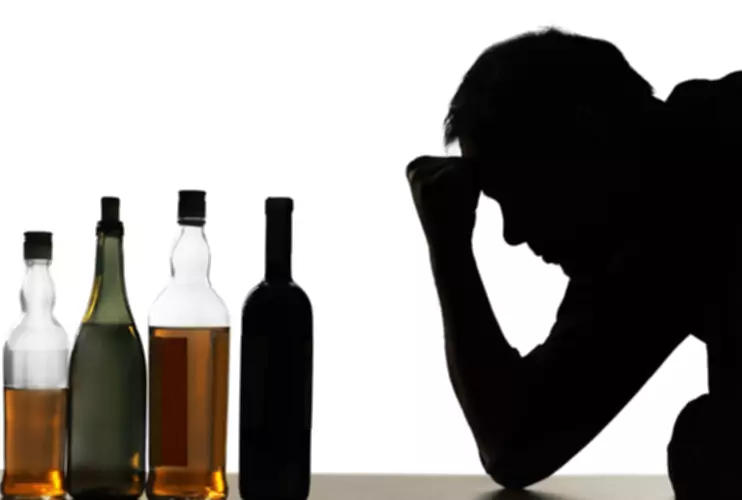
Status epilepticus is a life threatening condition in which a person has a seizure lasting longer than 5 minutes without regaining normal consciousness or has more than one seizure within 5 minutes. Heavy alcohol consumption is a common trigger for seizures in those who already have epilepsy. They will also typically give you medication to stop a seizure if you are experiencing one. Seizures typically occur within 12 hours of stopping the use of alcohol or reducing your intake. Although alcohol rarely causes seizures, alcohol’s relaxing effect is removed during withdrawal. Also, if there are 3 or more seizures in a row and the person does not regain consciousness in between seizures, they should be evaluated in a hospital emergency room.

Alcohol Withdrawal Syndrome
You will typically require hospitalization if you experience seizures related to alcohol withdrawal. While in the hospital, a medical team can monitor any other symptoms you may experience, as well as treat your seizures. Those who have a history of detoxification are more likely to experience seizures during alcohol withdrawal. To prevent alcohol withdrawal seizures, only drink alcohol in moderation or avoid drinking it altogether. Substance abuse treatment can vary depending on the severity of the addiction.
Similar articles in PubMed
But heavy drinking over a short space of time (binge drinking) can make you more likely to have a seizure. But treatment varies based on the severity of alcohol withdrawal and the likelihood that it could progress to severe or complicated withdrawal. Phenytoin is not effective versus normal saline placebo at preventing seizure recurrence related to alcohol withdrawal syndrome [37, 38, 43]. Your body is adaptable, and your brain chemistry will adjust to alcohol’s presence over time. Since alcohol causes inhibitory effects on your brain, your brain may produce fewer of its own inhibitory effects.
What are the guidelines on how much I should drink?
Primary care physicians should offer to initiate long-term treatment for alcohol use disorder, including pharmacotherapy, in addition to withdrawal management. The severity of alcohol withdrawal symptoms depends on the severity of the alcohol use disorder. However, those with a history of heavy or prolonged alcohol use can develop severe alcohol withdrawal symptoms. These symptoms can develop and change suddenly and aggressively, including alcohol withdrawal seizures and delirium tremens, which can be fatal without the proper treatment. Alcohol withdrawal syndrome can range in severity from mild to fatal, making it crucial for patients to present to care for evaluation of their symptoms.
Why Does Alcohol Withdrawal Cause Seizures?
Alcohol is the common name for drinking alcohol, but it’s actually a specific chemical in a broad category of chemicals called alcohol. It is produced naturally through the breaking down of sugars in plants and fruit. Alcohol can manipulate chemicals in your brain to create psychoactive effects. For people with epilepsy, alcohol may interfere with anti-seizure medications and increase the risk of seizures. In people with epilepsy, drinking three or more drinks may increase the risk of seizures.

Alcohol and Seizures
- If left untreated, severe alcohol withdrawal symptoms can be potentially life-threatening.
- Interventional studies with or without a comparator group, including randomized controlled trials (RCT) and non-randomized trials, as well as observational cohort studies that evaluated an intervention.
- If a patient begins experiencing signs and symptoms of severe withdrawal, including but not limited to seizure, altered mental status, or agitation, they should seek emergency care immediately.
- It is unclear if symptom-triggered protocols are effective for use in EDs, especially in those without attached observational units that can support longer stays.
- Repeated detox attempts can increase the risk of a severe withdrawal syndrome, including alcohol withdrawal seizures, due to the kindling effect, and a severe withdrawal syndrome called delirium tremens (DTs).
- The three-question Alcohol Use Disorders Identification Test–Consumption and the Single Alcohol Screening Question instrument have the best accuracy for assessing unhealthy alcohol use in adults 18 years and older.
Patients who have had prior complicated withdrawals should not attempt to decrease their alcohol intake without consultation with their healthcare team. If a patient begins experiencing signs and symptoms of severe withdrawal, including but not limited to seizure, altered mental status, or agitation, they should seek emergency care immediately. When alcohol withdrawal syndrome has resolved, patients ought to be evaluated for AUD and offered treatment, if appropriate, including pharmacotherapy and behavioral treatment.

Alcohol Withdrawal Seizures Explained
If you experience severe symptoms of alcohol withdrawal, like seizures, you will most likely require hospitalization. While in the hospital, your medical team will monitor you for other signs of withdrawal. According to a study published are alcohol withdrawal seizures dangerous in 2019, alcoholic seizures caused significant negative effects in those who experience them, both emotionally and physically. This is not surprising, since these seizures affect brain function, and intensifying withdrawal symptoms.
How Is Alcohol Withdrawal Treated?
Alcohol withdrawal is one of the most indicative signs that a person is alcohol dependent. When a person with an alcohol addiction stops drinking, the brain essentially goes haywire because it has become dependent on the presence of alcohol. Severe alcohol withdrawal cases can result in developing delirium tremens, one of the most dangerous and life-threatening symptoms of withdrawal. While in withdrawal, if a person experiences multiple seizures, status epilepticus may occur.
- This is a major concern, as approximately 37 percent of individuals with untreated delirium tremens die.
- Below, you’ll learn more about seizures, how they can be linked to alcohol use, abuse and alcoholism, and how to know whether you or someone you love might be addicted to alcohol.
- But the relationship between alcohol intake and seizures is not straightforward.
- These are both things that can make you more likely to have a seizure (seizure triggers).
Overview of Alcohol-Related Seizures: Can Drinking Alcohol Cause Seizures?
Pharmacotherapies that have demonstrated benefit for treatment of alcohol withdrawal in other settings need to be evaluated in the ED setting before routine use. A professional health sciences librarian (MDW) developed our search strategy. We searched MEDLINE and CENTRAL using concepts emergency department AND alcohol withdrawal AND (drugs OR drug subheadings). We searched EMBASE using concepts emergency department AND alcohol withdrawal (focused) AND (drugs OR drug subheadings), as well as concepts emergency department AND alcohol withdrawal AND drugs AND drug subheadings. Subheadings and keywords were included in the searches to increase sensitivity.
